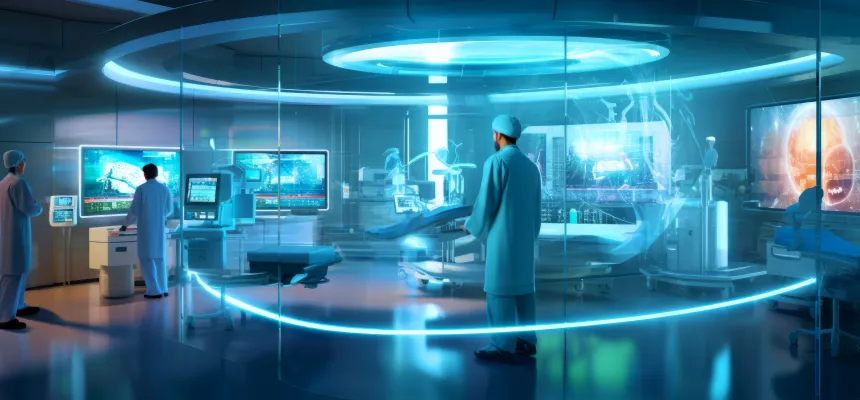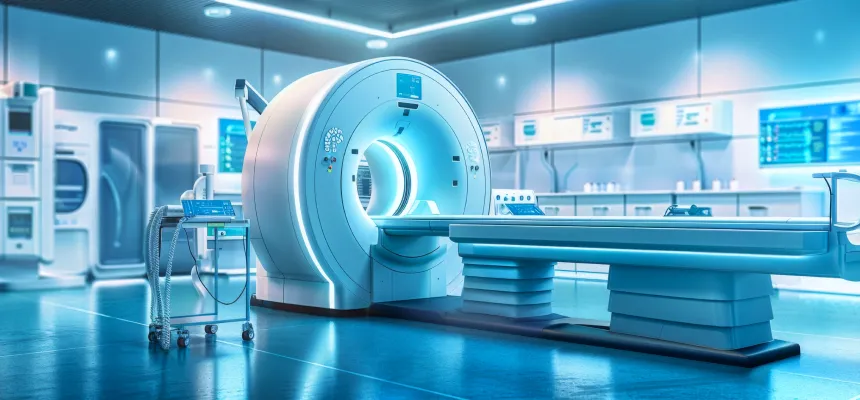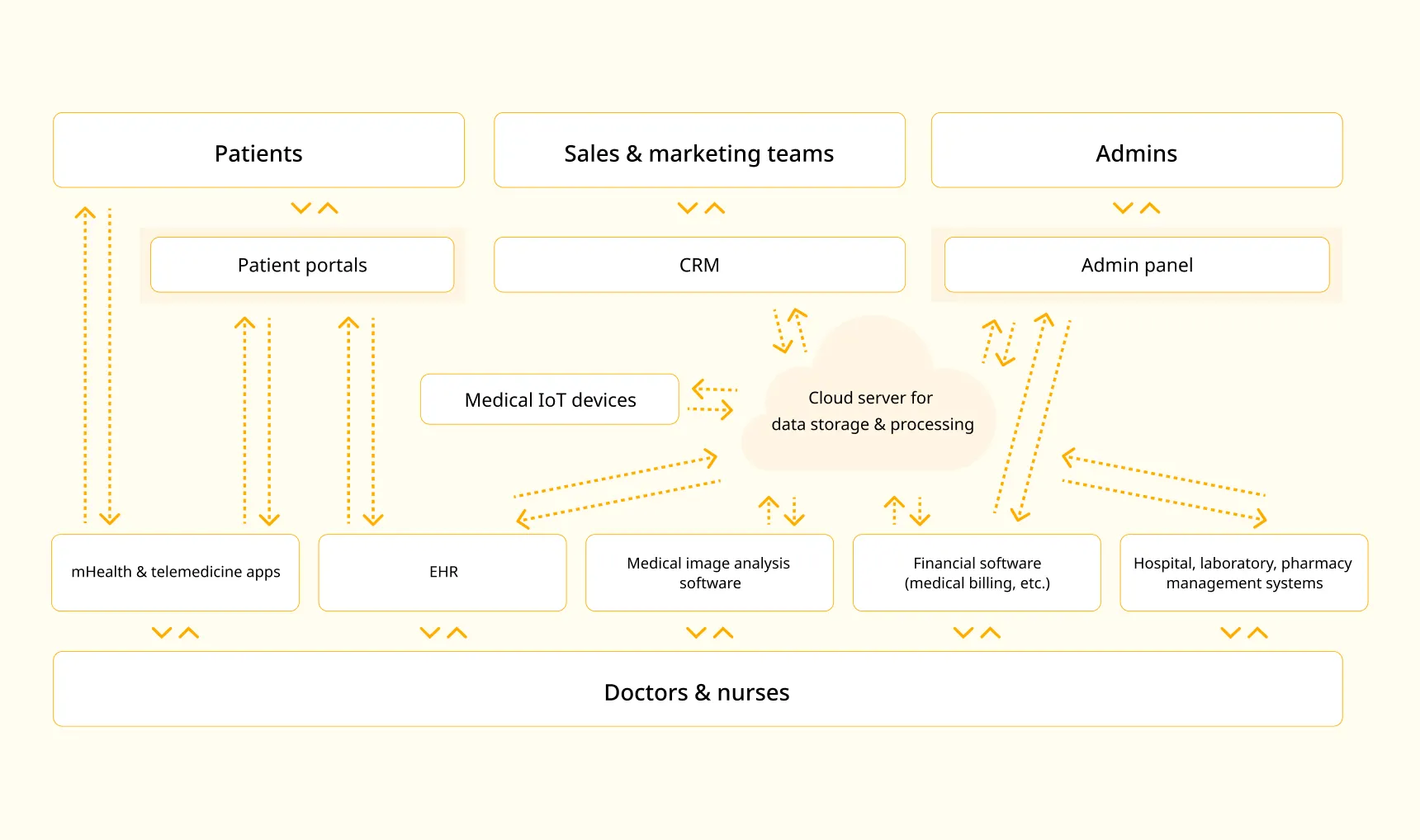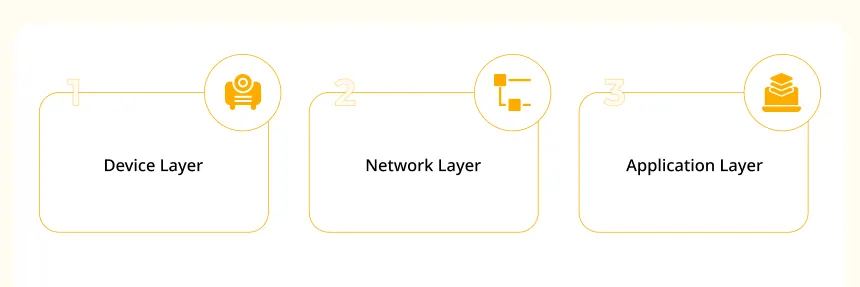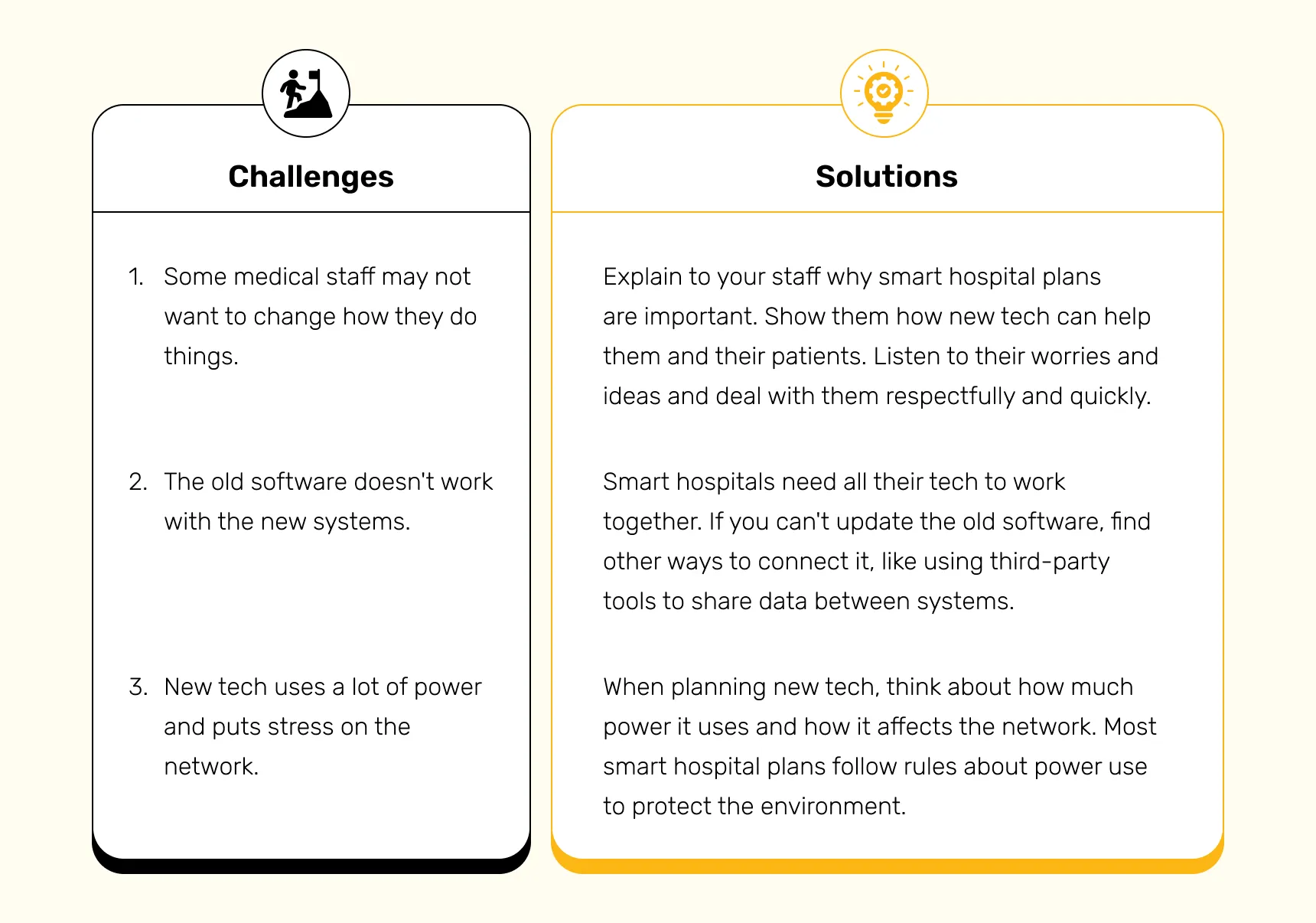“Health technology has the potential not just to improve patient outcomes, but to change the very way we think about health and wellness.” -Daniel Kraft
In a world where technology is changing every aspect of our lives, there is no question that the healthcare industry is one of them.
Today, the healthcare sector is heavily dependent on technology, thanks to growing technologies and trends that simplify medical facilities for patients. These include new drugs, surgical procedures, vaccines, and more.
Hospitals and clinics can offer better and more effective services with the help of these technologies. IoT, or the Internet of Things, is one such technology in healthcare that is being highly used in this sector.
Recently, due to the COVID-19 pandemic, hospitals and clinics have realized that implementing digital technologies across all areas is critically important.
This was when people were confined to their homes and used digital means to obtain needed healthcare assistance or services.
All of these gave rise to the telehealth market. Hospitals and clinics had to shift towards digital methods as more patients started looking at the advantages of remote medical checkups and digital healthcare services.
Being efficient is very important for healthcare providers now. So, they see smart hospital solutions as the next step in using more digital technologies and systems.
This blog post will talk about smart hospitals, their benefits for patients and businesses, architecture, technologies, and more. We’ll also explore how you can make your hospitals more smarter.
What is a Smart Hospital?
To understand smart hospitals, you first need to know about IoT (Internet of Things). It is a network of devices that can connect to the internet and share information or data.
A smart hospital is a digitally interconnected healthcare system that efficiently exchanges data between medical devices and IT infrastructure.
These advanced solutions streamline clinical and administrative workflows, boost operational efficiency, and enhance patient experiences and health outcomes.
For example, a smart light bulb can automatically turn off when no one is in the room or change its brightness based on the time of day.
But the light bulb alone is not enough. It needs data from other sensors, like ones that detect how much natural light is coming in from outside. The light bulb and sensors sharing this data back and forth is a basic example of how IoT (Internet of Things) works.
Discover how ValueCoders can empower your brand with innovative technologies.
That’s not all! IoT has many uses, like collecting real-time data, tracking and managing equipment, and more. For these uses, IoT devices send their data to a central system.
Managers can then study this data, monitor equipment in real time, and control the IoT devices remotely from the central system. When all these components work together, it creates a fully functional IoT system.
Now, consider applying everything you learned about IoT to hospitals and clinics. Each floor can have different devices and sensors that talk to each other. They send data to a main system where a manager can see it in real-time.
The manager can also control the devices from far away. This creates a smart hospital that helps staff take care of patients better.
It is known as a smart hospital solution as it automates processes without the need of human intervention, allows to take actions based on the decided parameters and keeps the entire building connected.
Patients don’t want to compromise their health due to any global health crisis. So, it has become essential for hospitals and clinics to do everything possible to provide a smooth experience for their patients and efficient internal processes.
To provide these, there’s nothing better than IoT.
Benefits of Building A Smart Hospital
Building smart hospital solutions has numerous benefits for hospital owners and patients. Some of them, some of them are as the following:
1. Better Patient Experience
You can use telehealth apps and wall touchscreen facilities to improve patient experience. Smart hospital solutions offer online appointment facilities and cut down the waiting time using wall-mounted touchscreen services for your patients.
IoT, when connected with AI/ML for healthcare, can help your patient with a more comfortable and smooth patient experience with custom healthcare software development solutions.
2. Remote Healthcare
The recent pandemic has made remote healthcare necessary for both doctors and patients. Utilizing the benefits of IoT in healthcare, hospitals can offer smoother healthcare services to patients living in remote areas who find it hard to travel for longer duration due to their fragile condition. Therefore, remote healthcare services help make the checkup process much more convenient.
3. Accurate Diagnosis
Doctors and nurses can use many medical devices to monitor a patient’s health. This helps doctors learn more about their patients and make better diagnoses.
At times patients receive incorrect diagnoses due to insufficient data or human errors.
This can lead to serious, even deadly, issues. To avoid such misproceeding, healthcare solutions with IoT hospital technologies can ensure more accurate diagnoses.
4. Backoffice Task Automation
Hospitals not only need to offer the best services to their patients, but they also parallelly need to monitor whether their staff is working efficiently. Smart hospital solutions help in task automation.
Healthcare services providers are always struggling to optimally use their staff members as it requires a lot of effort and cost. However, using IoT and AI for smart hospitals automates repetitive tasks and easily monitors their staff without needing human intervention.
5. Enhanced Security
Smart hospitals offer enhanced security by using AI with a CCTV camera network and facial recognition technology. An advanced AI can check the live data in the main system, and it can find dangers almost right away.
Smart hospital solutions have to make sure they’re safe in every way, including keeping patients and data secure. Hospitals hold a ton of patient information. When they use IoT, they gather even more data.
This makes them a prime target for cybercriminals. However, with IoT healthcare solutions, you can keep your patient and other data safe.
6. Improved Asset and Staff Monitoring
Sensors and location tracking chips can help you track your hospital staff assets. Hospitals that are big or have more than hundreds of staff may find it hard to keep track of their team. IoT can help managers keep track of their team members and locate them whenever required.
Additionally, IoT allows managers to utilize staff and assets optimally. The sensors and facial recognition technology help track their staff’s arrival and departure from the premises.
RFID chips help keep track of and locate assets. Furthermore, managers can also monitor assets’ condition to check whether they require maintenance.
We prioritize user-centric design and seamless functionality to ensure your smart hospital stands out.
How to Build a Smart Hospital?
Now that you know what a smart hospital is and its benefits, let’s explore how smart hospital solutions are built.
It’s not an easy task to turn your traditional hospital into a smarter one. There’s no pre-set architecture that you can simply install.
Although every hospital has some common requirements, there are a lot of unique needs as well. Therefore, the IoT solution offered must be customized to meet the unique hospital demands.
If you wish to turn your traditional hospital into a smart hospital, you must partner with a reputed healthcare app solutions provider, such as ValueCoders.
To make your IoT plan work, you need to identify your pain points first. Your needs are like the base of a building for your smart hospital solutions. You’ll need to look at how things are done now and decide what’s most important.
You must evaluate current infrastructure, business, and process requirements and budget. We’ll be discussing this in detail in the coming sections.
Also read: A Complete Guide For Healthcare App Development
Smart Hospital Architecture
A smart hospital has many systems linked together, all connected to a central cloud server where most of the shared data is kept and handled.
The specific systems can differ from one hospital to another based on what online medical services they offer and what they need. However, the main idea is to have smart software that works together smoothly.
EHR
Electronic Health Records (EHR) hold crucial patient information. This data is essential for personalizing patient treatments, managing population health, running preventive health campaigns, and conducting medical research. Smart technologies like blockchain, RPA (Robotic Process Automation), and AI healthcare data analytics ensure that EHR data is safe, transferred securely, and processed efficiently.
Healthcare CRM
Enhancing your healthcare CRM with analysis tools and conversational AI can improve marketing and sales efforts by making them more personalized, transparent, and efficient. It can also help save time when managing documentation.
Hospital Management Software
Hospital management software, along with medical equipment and software connected to the Internet of Medical Things, make it simpler to manage hospital inventory. They also help ensure patient safety and distribute resources and tasks more evenly, leading to smoother hospital management.
Explore our expertise in building scalable and secure smart hospital architectures.
Financial Software
Using automation can speed up and improve how insurance claims are handled. At the same time, smart contracts and modern payment software can make it simpler for patients to pay for healthcare services and help healthcare organizations get paid faster.
Medical Image Analysis
Using machine learning to spot irregularities and patterns, AI-powered computer vision can quickly detect possible health issues from medical images. This helps doctors make more accurate diagnoses by adding to their expertise.
Patient Portals
Connecting patient portals with advanced healthcare technologies like NLP (Natural Language Processing) can assist patients in accessing educational resources about their condition faster. It also helps them comprehend their test results better and even book appointments with healthcare providers based on their treatment or immunization schedules automatically.
Laboratory Management System
Robotic Process Automation (RPA) tools can move data between lab systems and Electronic Health Records (EHRs) without human intervention, making document management easier. Additionally, advanced analysis tools can study data from lab systems and provide more precise insights from lab tests.
Pharmacy Management Software
Pharmacy management software isn’t just for clinicians in smart hospital solutions. Pharmaceutical companies also gain from automating inventory, prescriptions, paperwork, and finances with RPA tools. Additionally, they can use advanced analytics and blockchain to find better drugs and safeguard patients from fraud.
Also read: Top 8 Healthcare Software Development Companies To Outsource Your Project
Shift Towards Making Hospitals Smart
Remember, it’s best to take small steps when changing to digital systems. First, decide what’s most important.
Do you want to make your office work easier and manage your staff better? Or do you want to make things better for your customers? Once you know your main goal, you can find the right partner who knows a lot about using IoT for healthcare.
Although your IoT partner will help you through the whole process, it’s good to understand more about the IoT setup.
A standard smart hospital solutions usually look like this:
Device Layer
The device layer includes all the sensors and IoT devices. These gadgets collect data in different ways across the hospital. Many types of devices and sensors can be used.
Wearable Sensors:
These are devices patients wear to keep track of their health. They can measure things like heart rate, blood pressure, and oxygen levels. Doctors can use this data to monitor patient’s conditions more closely.
Location Sensors:
These sensors help keep track of where people are in the hospital. It can be helpful in emergencies to know where patients, doctors, and equipment are located. It also helps with efficiency, ensuring staff and resources are in the right place at the right time.
Ambient Sensors:
These sensors gather information about the hospital environment, like temperature, humidity, and air quality. This data can be used to maintain a comfortable and secure environment for patients and staff. It can also help identify potential issues like leaks or equipment malfunctions.
Other Sensors:
Smart hospital solutions might use a variety of other sensors, including those implanted in patients for specific purposes. These sensors can monitor things like glucose levels in diabetic patients or pressure in patients with certain medical conditions.
These sensors collectively form the device layer of a smart hospital’s IoT infrastructure, playing a crucial role in gathering data that can be analyzed and utilized to improve patient care, operational efficiency, and overall hospital management.
Transferring data between devices and the main system can be tricky. Since these devices send data constantly, it piles up on servers, causing storage and management issues. Plus, there can be delays between devices and the main server where AI processes the data. If every decision relies on sending data back and forth, it takes time. To solve this, many hospitals use Edge devices. These are smart IoT devices that can make some decisions on their own. This helps reduce delays and improve efficiency.
Network Layer
The network layer deals with how devices talk to each other and far-away servers. It decides which network rules and radio technology to use.
The back-end is mostly made of servers. These servers can be nearby or far away. Devices talk to far-away servers to save data and get instructions. The server also holds the user app, which we’ll talk about later. Many prefer cloud IoT systems over local servers because they’re cheaper, and users don’t have to look after them.
Application Layer
To run smart hospital solutions smoothly, you’ll need a good IoT hospital management app. This app layer includes all the software needed to manage the hospital smartly. It works on servers, letting users check real-time data from devices, control devices from far away, and get important insights. With AI’s help, managers can spot trends and get advice on making the hospital work better.
Also read: Digital Transformation: Top Strategies For Modernizing Your Business
Smart Technologies for Healthcare Settings
Regular hospitals might use new technology in healthcare here and there without changing how things are done much. But smart hospital solutions use things like 5G, AI, IoT, augmented reality, and more in a lot of their work to make clinical and business tasks better. A healthcare place might use one or more of these technologies to make its services better and be called a smart hospital.
The Internet of Things (IoT)
- Smart beds
- Devices for collecting blood
- Machines for medical imaging
- Trackers to know where inventory is in real-time
- Readers for barcodes in pharmacies
- Sensors for temperature, humidity, and cleanliness
- Gadgets to monitor patients
- Surgeries assisted by robots
Artificial Intelligence (AI)
- Chatbots to help patients and provide education
- Improving and understanding medical images
- Predicting how drugs work
- Better medical images for learning
- Software that analyzes big amounts of data for diagnosing
- Automating managing documents
Telehealth
- Online appointments with doctors
- Talking with care providers in real-time
- Keeping an eye on patients all the time
- Finding out what’s wrong with patients from far away
- Sharing information between healthcare workers
- Sending data quickly between different healthcare places
mHealth
- Apps that go along with telemedicine services
- Apps for patients to handle their medical records on their phones
- Doctors can reach healthcare systems from far away
- Easy ways to book appointments
- Managing medication orders even when you’re out
- Materials about patient care for nurses and caregivers
Extended Reality
- Better pictures for diagnosing
- Surgeries done remotely with virtual reality
- Learning materials with augmented reality
- Changing flat pictures into 3D models
- Making virtual models of healthcare places
Blockchain
- Tools to track drugs
- Better security for patient information
- Keeping clinical trials safe
- Using cryptocurrency to pay for medical bills
- Checking if medical staff are qualified
- Making sure e-prescriptions are safe
Smart Hospital Challenges & How to Overcome Them
Even though hospitals plan a lot to make smart hospital solutions, unexpected problems can still come up. Here’s how a skilled partner would suggest healthcare providers handle them.
Harness the power of smart hospital technologies to drive positive outcomes for your patients and organization.
Parting Thoughts!
By using available smart technology in healthcare, this new model gives flexible, data-focused medical care. It makes clinical work smoother, eases the load on medical staff, and makes patients happier.
But smart hospital solutions are more than just fancy tech; it’s the future of the healthcare industry. Completely changing healthcare requires big changes in how clinics work.
We need to train staff better and work closely with other institutions to share info and skills. In short, smart hospitals can only be truly smart if we use all the best practices to make staff, clinics, and tools work together well.
Looking to implement smart healthcare solutions? Reach out to ValueCoders for expert assistance!

